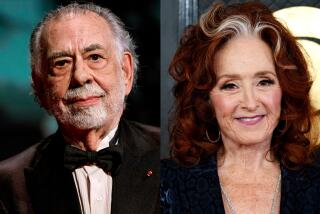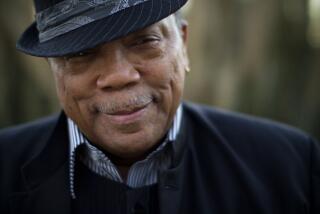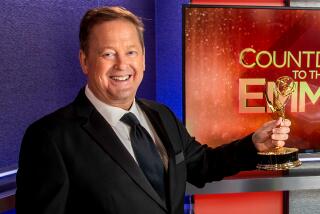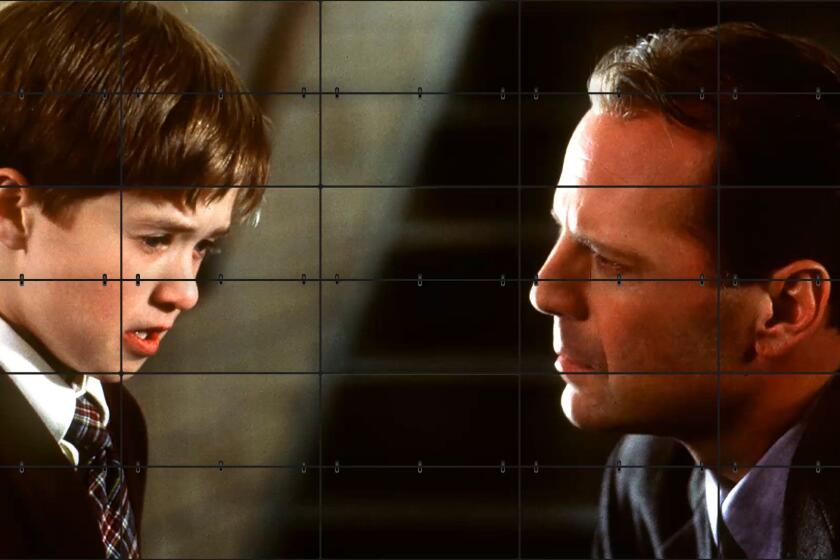Governors Awards honorees Lalo Schifrin and Marvin Levy look back on their careers
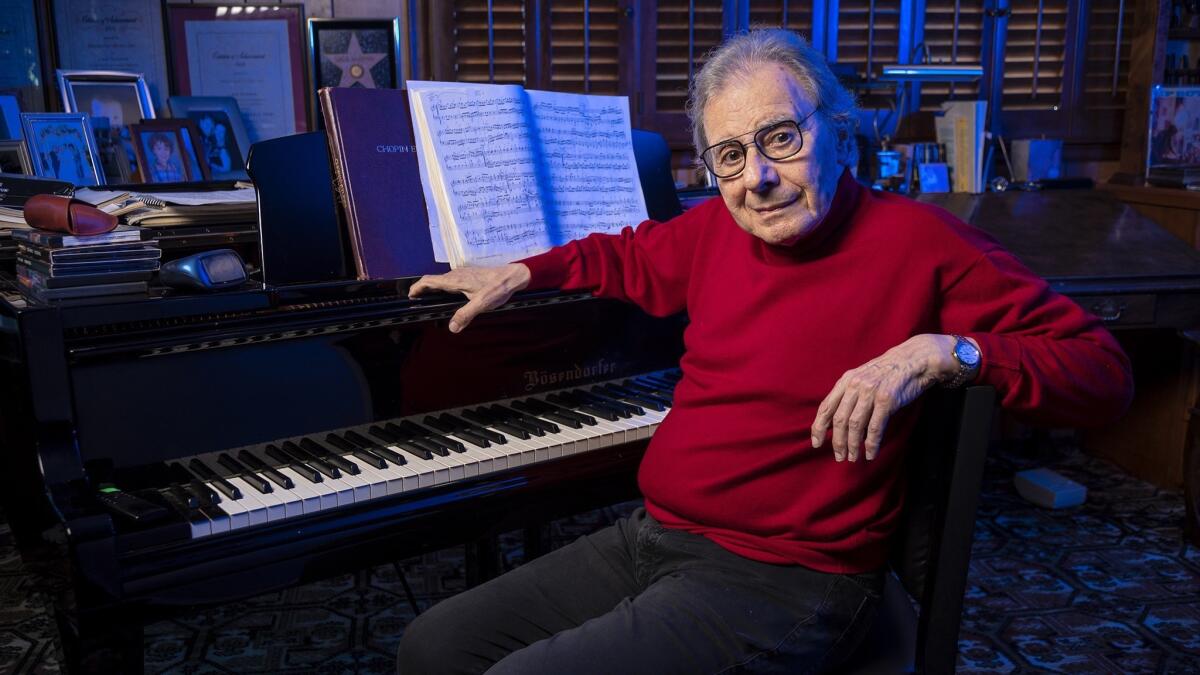
On Sunday evening, many of Hollywood’s biggest power players will gather at the Ray Dolby Ballroom in Los Angeles for the motion picture academy’s 10th Governors Awards ceremony, a chance to honor filmmaking luminaries for their lifetime contributions to the art form and, for Oscar hopefuls, a key early stop on the awards season campaign circuit.
Selected by the Academy of Motion Picture Arts and Sciences’ board of governors, this year’s Governors Awards honorees will be actress Cicely Tyson, composer Lalo Schifrin and publicist Marvin Levy. Producers Kathleen Kennedy and Frank Marshall will receive the Irving G. Thalberg Memorial Award, which is presented to creative producers “whose body of work reflects a consistently high quality of motion picture production.” (The award hasn’t been presented since 2010, when Francis Ford Coppola was the honoree.)
Tyson, 93, hardly needs any introduction. The actress came to prominence when she received an Academy Award nomination for her leading performance in the 1972 film “Sounder” and has since won three Emmy Awards, a Screen Actors Guild Award and a Tony Award as well as the Presidential Medal of Freedom. Having inspired a younger generation of actors with her work in projects like “The Autobiography of Miss Jane Pittman” and “Roots,” Tyson will become the first African American woman to earn an honorary Oscar. (Oprah Winfrey received a Jean Hersholt Humanitarian Award in 2011.)
The husband-and-wife duo of Kennedy, 65, and Marshall, 71, have – both individually and in partnership – produced a remarkable string of critical and box-office hits, including “Raiders of the Lost Ark,” “E.T. the Extraterrestrial,” “The Sixth Sense,” “Lincoln” and “Jurassic World.” The first woman to receive the Thalberg Award, Kennedy is president of Lucasfilm.
As for Schifrin and Levy, in very different ways each has had a major hand in some of the most important and successful films of the past half century. The Times spoke with the two about their long and illustrious careers.
Steven Spielberg’s trusted right-hand man
When Levy got the call from academy President John Bailey that he would be receiving a Governors Award, he was stunned – particularly because, until now, no publicist has ever received an honorary Oscar before.
“My reaction was, “What?! Are you sure?’ ” Levy said by phone earlier this month. “It was quite a surprise, to say the least.”
Born and raised in New York, Levy started his publicity and marketing career at MGM before moving to Columbia Pictures, where he helped craft campaigns for such films as “Kramer vs. Kramer” and “Close Encounters of the Third Kind.”
Levy’s work on 1977’s “Close Encounters” launched what would become a decades-long partnership with that film’s director, a young cinematic wunderkind named Steven Spielberg who was then coming off a little summer movie called “Jaws.”
“Sometimes you get lucky, and I really got lucky on this,” said Levy, who before entering the film business had written questions for TV quiz shows. “I came back from working on [the 1977 thriller] ‘The Deep’ and they said, ‘Don’t take a vacation because we want you to go on “Close Encounters.” ’ And that’s how that relationship really became cemented.”
Levy, who went on to hold positions at Amblin Entertainment, DreamWorks Studios and Amblin Partners, has helped craft the campaigns for every Spielberg movie of the past four decades, along with such films as “Who Framed Roger Rabbit,” “American Beauty” and “Gladiator.”
But he singles out two Spielberg films of which he is particularly proud to have been a part: 1982’s “E.T.” and 1993’s “Schindler’s List.”
“When ‘E.T.’ came out, it was a project that nobody really knew about,” Levy said. “It wasn’t like a ‘Star Wars’ kind of thing – this was a very unusual, small, more personal film. You just had to try to be true to what it was. It was about the warmth and feeling you have when you have a friend and love is there in many different ways.”
As for the Holocaust drama “Schindler’s List,” Levy said, “Nobody expected it would be a big-grossing movie. It was not a movie made to make money – it was a movie made to tell a story that really needed to be told. And that story resonates today maybe more than it did then.”
Levy doesn’t like to share his age but suffice to say he has certainly earned the right to retire. That doesn’t interest him in the least, though.
“As long as I can do this, I’m happy to do it,” he said. “I’m so fortunate to be where we are and under the umbrella of Steven and the other people in our world of film today.”
He paused then added with a laugh: “I’ll tell you what I say, it’s a joke I heard years ago: People ask me that question and I say, ‘I married my wife Carol for better or worse, but not for lunch.’ ”
A versatile and prolific composer
Nominated for six Oscars for his scores to such films as “Cool Hand Luke,” “The Amityville Horror” and “The Sting II,” the Argentinian-born Schifrin, 86, has his Governors Awards acceptance speech all ready to go. “It’s written in C-sharp minor,” the pianist, composer and conductor said wryly in an interview at his home in Beverly Hills.
Schifrin’s life has been steeped in music. His father, Luis Schifrin, was the concertmaster of the Philharmonic Orchestra of Buenos Aires, and from a young age Schifrin began studying piano. “Somebody else, if their parents are interested in cooking, they might want to be a chef,” he said. “In my case, there was nothing else other than music.”
At 5, Schifrin was taken by his grandmother to a horror movie and had an epiphany that would stay with him forever. “I realized that without music the film wouldn’t be so scary,” he said. “That was the beginning of something.”
Schifrin went on to fall in love with jazz, started his own big band and eventually began working with legendary jazz trumpeter Dizzy Gillespie. But his other obsession – movies – never left him, and in 1960 a work he composed for Gillespie, called “Gillespiana,” caught the ear of Hollywood studio executives, sparking what would become a successful career composing for film and television.
Schifrin quickly earned renown for his ability to seamlessly synthesize jazz and classical traditions and for his innovative instrumentation, eventually going on to compose scores for more than 100 films including “Bullitt,” “Dirty Harry,” “Enter the Dragon” and “Rush Hour.”
“I learned to be a chameleon,” Schifrin said. “In motion pictures, the real creator is the screenwriter and the director and the producer. I have to work for what they have made. Like a chameleon, I do whatever is necessary.”
As prolific as he has been, Schifrin may be best known for writing the theme for the TV spy series “Mission: Impossible,” one of the best loved and most infectious ear worms ever to come out of the entertainment industry. Last year, the theme, which has carried forward into the film franchise, was inducted into the Grammy Hall of Fame.
“It didn’t take me more than one second,” Schifrin said of his inspiration for the adrenaline-pumping tune. “How can I explain that? But that’s what happened – and now it’s all over the world. It was nice.” He shrugged modestly. “But it’s not my best composition.”
To this day Schifrin, who received a star on the Hollywood Walk of Fame in 1988, continues to receive commissions for new compositions, and the wellspring of music in him shows no sign of running dry.
“I’m not retired,” he said. “Retirement is the death of the soul. My soul and my brain and my heart are still working.”
Twitter: @joshrottenberg
More to Read
Only good movies
Get the Indie Focus newsletter, Mark Olsen's weekly guide to the world of cinema.
You may occasionally receive promotional content from the Los Angeles Times.
